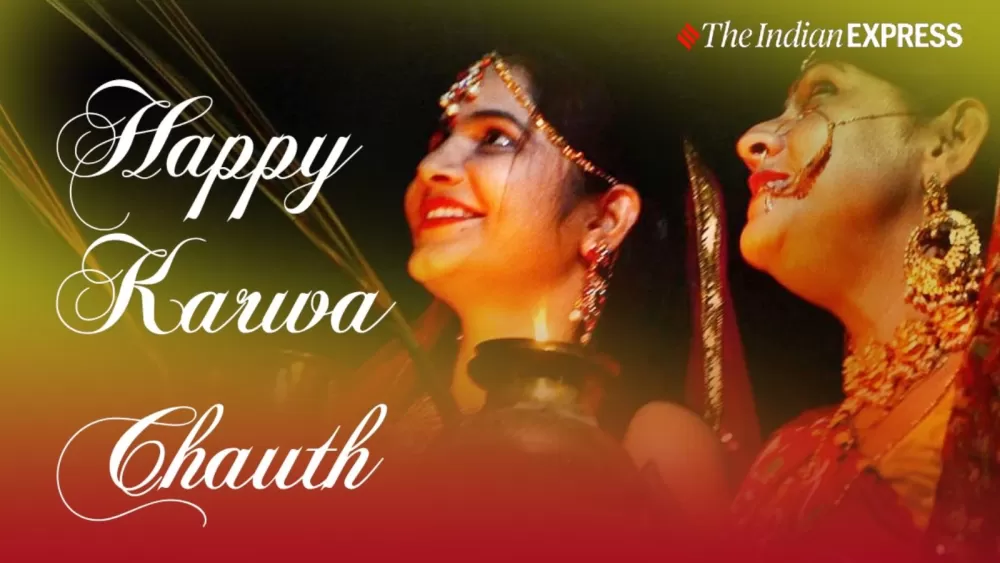Karwa Chauth 2025: Celebrating Love, Longevity, and the Sacred Bond
Share- Nishadil
- October 09, 2025
- 0 Comments
- 3 minutes read
- 59 Views

Karwa Chauth 2025: Date, Timings, and the Enduring Spirit of Love and Devotion
Karwa Chauth 2025 is on Sunday, October 19th. This Hindu festival sees married women observing a 'Nirjala Vrat' from sunrise to moonrise for their husband's longevity and prosperity, culminating in traditional puja and moon-sighting rituals.
Karwa Chauth, a revered Hindu festival, stands as a profound testament to the eternal bond between a husband and wife. Primarily observed by married women, this auspicious day is dedicated to praying for the longevity, well-being, and prosperity of their spouses. It's a day steeped in tradition, devotion, and heartfelt rituals, making it one of the most significant celebrations in the Hindu calendar.
For the year 2025, Karwa Chauth will grace our calendars on Sunday, October 19th.
This special day falls on the fourth day after the Purnima (full moon) in the month of Kartik as per the Purnimant calendar, or Ashvin according to the Amavasyant calendar, a period rich with cultural and spiritual significance.
The Puja Muhurat for Karwa Chauth 2025 is set for 05:46 PM to 07:02 PM, offering a precise window for performing the sacred rites.
As the day culminates in anticipation, the Moonrise Timing is expected around 08:08 PM, marking the moment when devout fasts are finally broken.
The origins and significance of Karwa Chauth are deeply woven into ancient lore and cultural narratives. One popular tale revolves around Queen Veervati, whose unwavering devotion saved her husband's life.
Another powerful legend is that of Savitri and Satyavan, where Savitri's determination and loyalty convinced Yama, the god of death, to return her husband's life. Even the epic Mahabharata features this vrat, with Draupadi observing it for the safety of the Pandavas, counselled by Lord Krishna himself.
Beyond the marital bond, Karwa Chauth also celebrates the profound camaraderie among women, particularly the 'Karwas' – a term for friends or companions.
Women gather, share stories, perform rituals together, and strengthen their collective spirit, embodying a sense of community and mutual support.
The day commences with 'Sargi', a pre-dawn meal prepared by the mother-in-law, blessing her daughter-in-law for the arduous fast ahead. Following this, women undertake a 'Nirjala Vrat', a strict fast without food or water, from sunrise until the moon's appearance.
The 'Baya' is a gift package from the mother to her daughter-in-law, signifying love and blessings.
As evening approaches, women adorn themselves in their finest attire, often vibrant traditional wear, and gather for the collective 'Karwa Chauth Puja'. Deities such as Goddess Parvati, Lord Shiva, Lord Ganesha, and Kartikeya are worshipped.
Central to the ritual is the 'Karwa', an earthen pot filled with water, symbolizing prosperity and life. During the puja, women listen to the 'Vrat Katha', narrating the festival's legends and virtues. The culmination of the fast arrives with the moon's sighting. Women view the moon through a sieve, then look at their husbands through it, perform 'arghya' (offering water to the moon), and finally break their fast by drinking water and eating a morsel of food from their husband's hands, signifying their deep love, respect, and shared future.
.Disclaimer: This article was generated in part using artificial intelligence and may contain errors or omissions. The content is provided for informational purposes only and does not constitute professional advice. We makes no representations or warranties regarding its accuracy, completeness, or reliability. Readers are advised to verify the information independently before relying on







